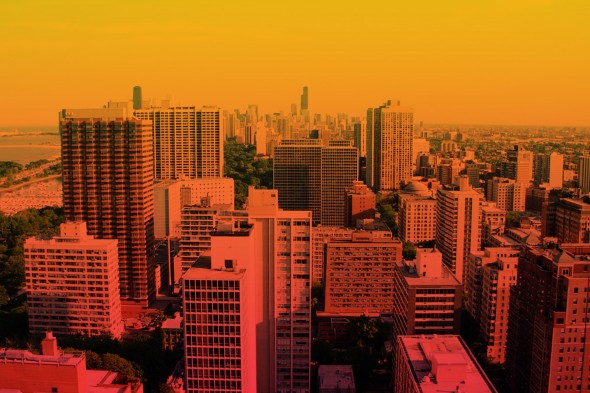Deadly Chicago heat wave: reviewing the lessons learned

“The heat wave was one of the worst natural disasters in U.S. history from a public health standpoint,” says UIC researcher Samuel Dorevitch.
An extreme and prolonged heat wave in the summer of 1995 killed more than 700 Chicagoans — some who remained unidentified, buried in mass graves.
“The heat wave was one of the worst natural disasters in U.S. history from a public health standpoint,” said Samuel Dorevitch, associate professor of environmental and occupational health sciences.
The School of Public Health commemorates the 20th anniversary of the heat wave with a public forum Sept. 16 to examine lessons learned for future weather and public health disasters.
“The 1995 Chicago Heat Wave: Then & Now” takes place from 9 a.m. to 5 p.m. at the School of Public Health. There will also be a live webcast. Register online.
Temperatures climbed as high as 106 degrees over a five-day stretch in July 1995. Many people did not have air conditioning in their homes; some who died lived in areas of high crime and were afraid to open their windows.
“The extreme heat that occurred in 1995 is going to happen again — the world’s climate is getting warmer and we have to be prepared,” said Dorevitch, one of the forum’s organizers.
Officials who played key roles in responding to the heat wave, as well as current public health leaders, will attend the forum. Speakers include Tom Skilling, chief meteorologist at WGN-TV; Suzet McKinney, Chicago Department of Public Health; Edmund Donoghue, former Cook County medical examiner; John Wilhelm, former city health commissioner; and George Luber, Centers for Disease Control and Prevention.
Chicago has come a long way in preparedness planning since 1995, Dorevitch said. Procedures are in place to reach those who were unreachable during the 1995 heat wave, often elderly people who lived alone in communities without many resources, Dorevitch said.
Dorevitch’s research includes climate change preparedness. He received a grant from the Centers for Disease Control to help state and local health departments prepare for the effects of global climate change.
“We need to think about what to do to be safe as the climate warms, what actions we can take so that we’re not producing greenhouse gases as a society,” he said.
It’s important that UIC students, as future leaders, learn about the heat wave, Dorevitch said.
“We want students in urban planning, public health, public administration, to learn about it so that when the Chicago of the future is planned, they recognize that people will die if the city isn’t able to keep itself cool.”
